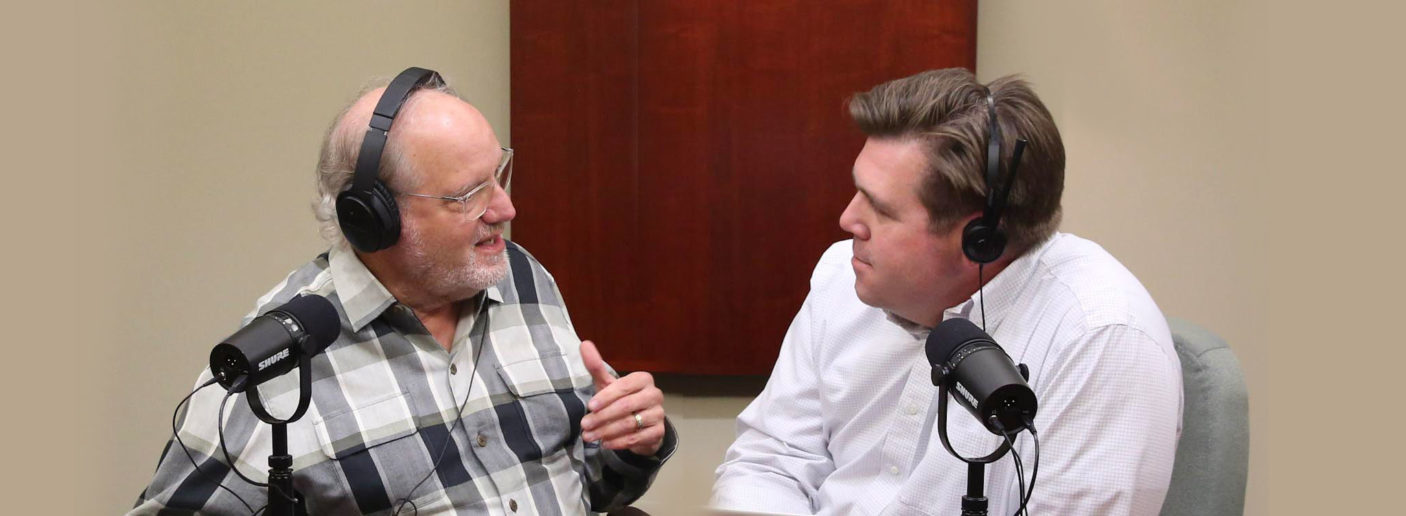
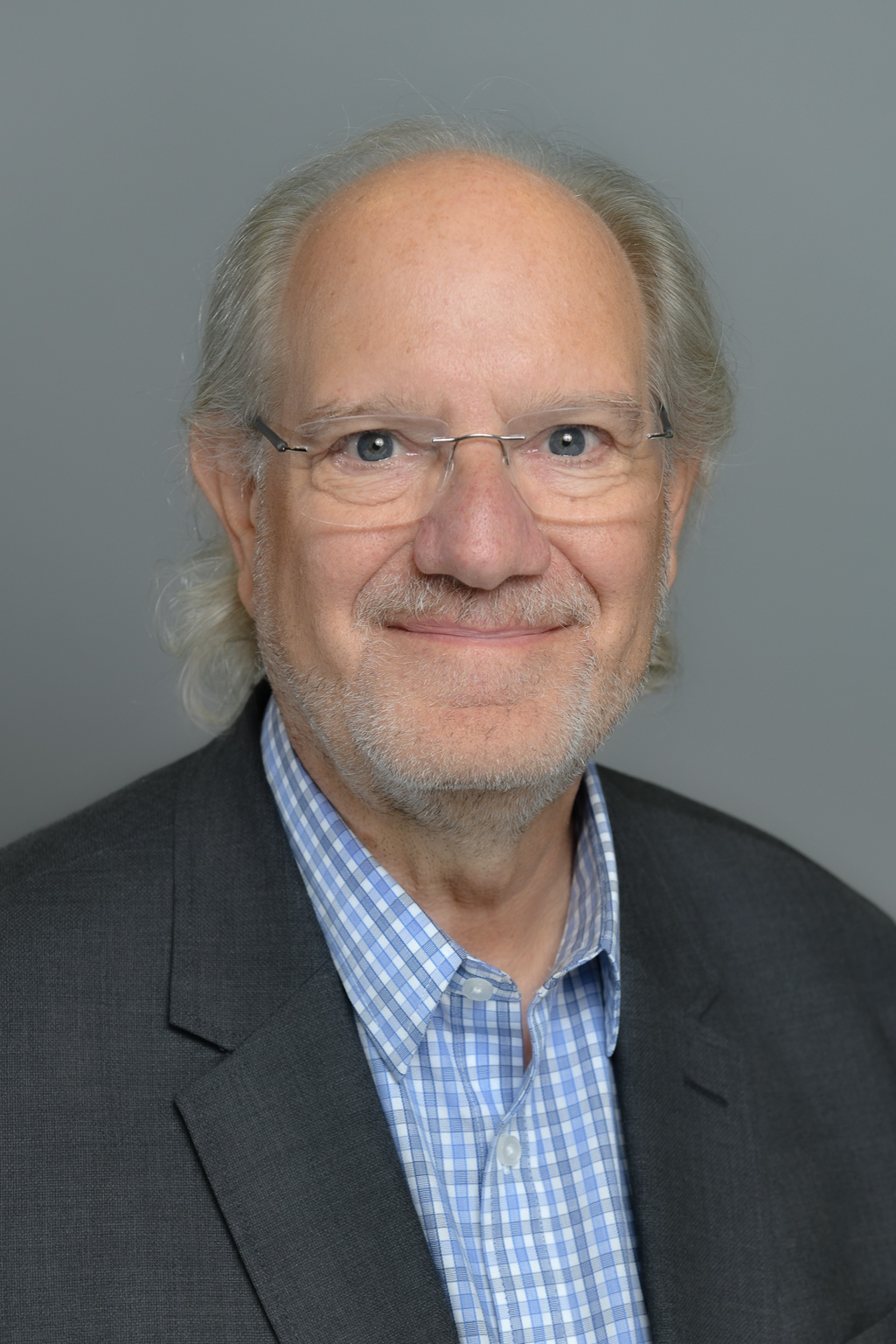
Dr. John Mulder
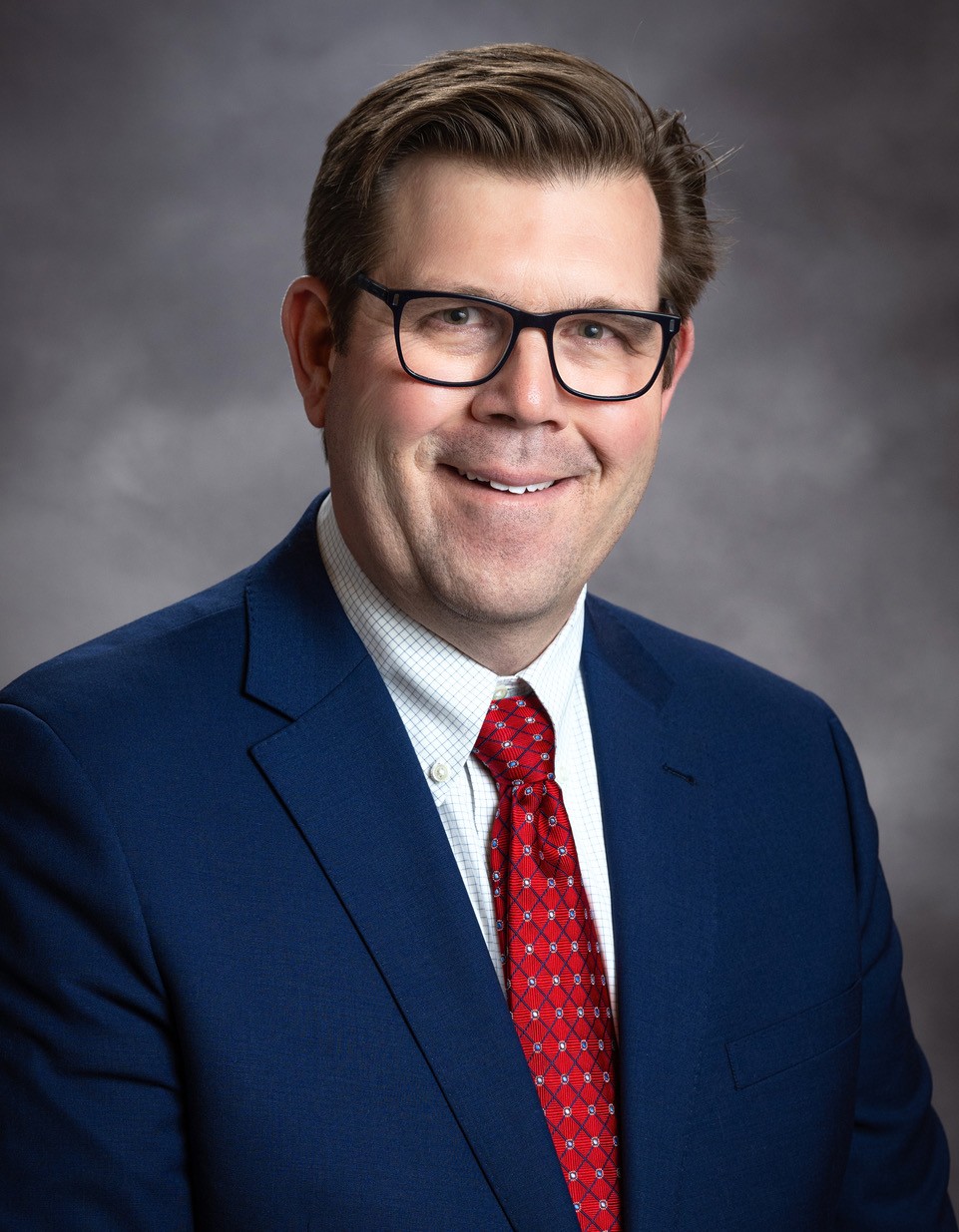
Dr. Jason Beckrow
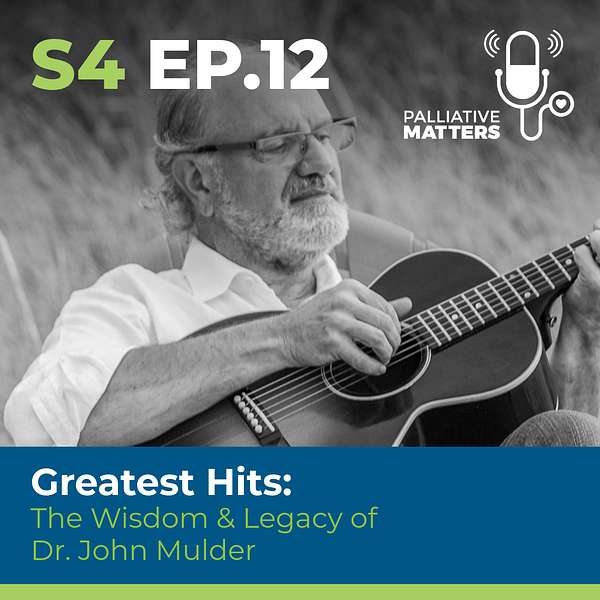
In this special tribute episode of Palliative Matters, guest host Dr. Gerald Harriman and Dr. Patrick Fitzgibbon honor the life and legacy of Dr. John Mulder—founder of the podcast, pioneer of palliative medicine, mentor, musician, and friend. Through a curated “greatest hits” collection, listeners hear Dr. Mulder in his own words as he reflects on his journey into palliative care, shares powerful patient stories, and illustrates the importance of relational, values-based medicine. Interwoven with reflections from colleagues and moments of music, this episode celebrates the wisdom, compassion, and enduring voice of a physician who continues to teach us why palliative care truly matters.
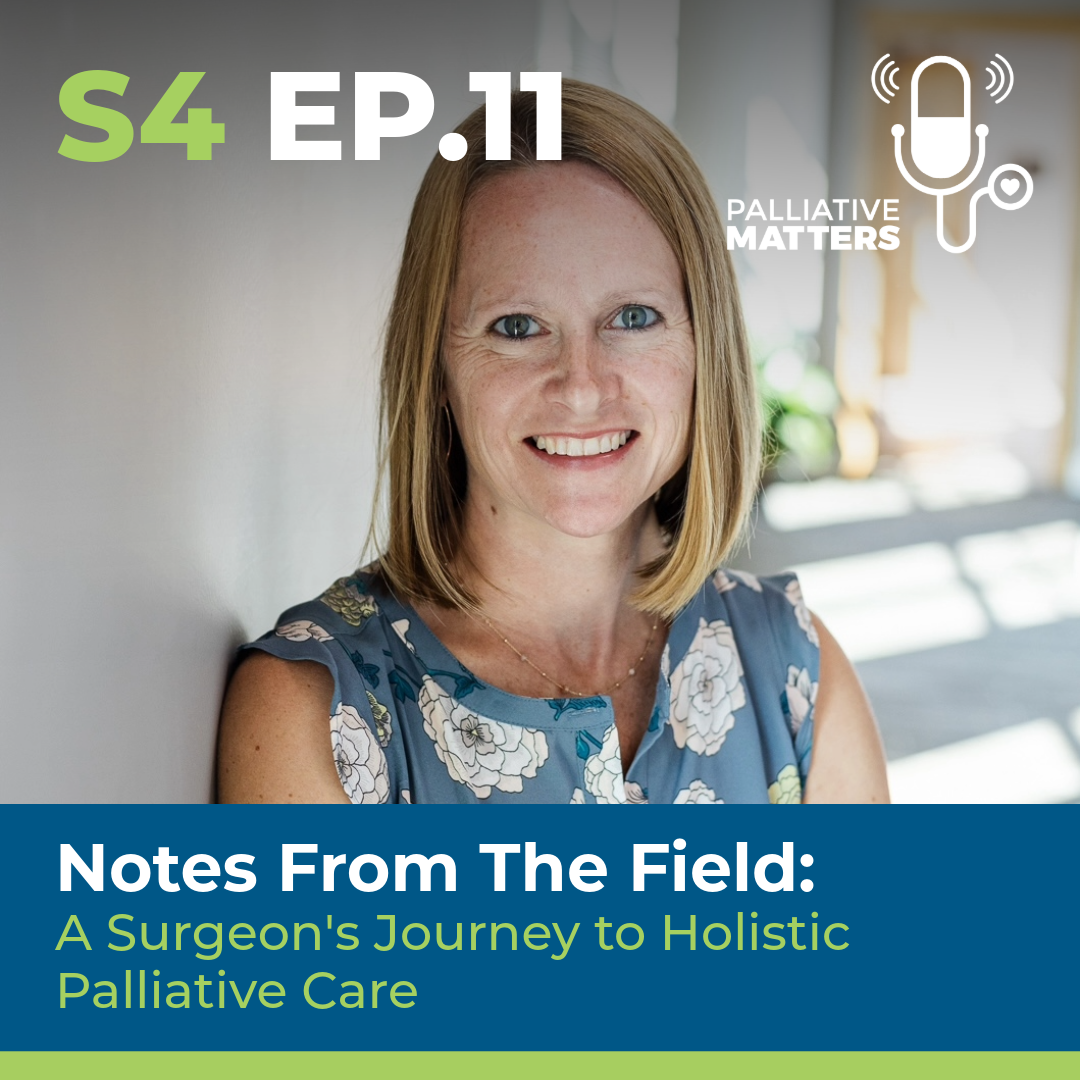
In this episode of Palliative Matters, John Mulder sits down with Dr. John Finn, a pioneer in hospice and palliative Former surgical oncologist Dr. Andrea Wolf joins Dr. John Mulder and Dr. Jason Beckrow to share her journey into holistic palliative care. She discusses how trust, human touch, and integrative techniques—like craniosacral therapy—shape her work with complex conditions such as dysautonomia. Dr. Wolf also highlights inspiring patient stories, including avoiding unnecessary surgery and finding relief during cancer treatment.medicine, to explore the profound human impact of care at the end of life. Dr. Finn shares stories from his early days in oncology and hospice, highlighting the transformative power of honesty, compassion, and presence in patient and family care.
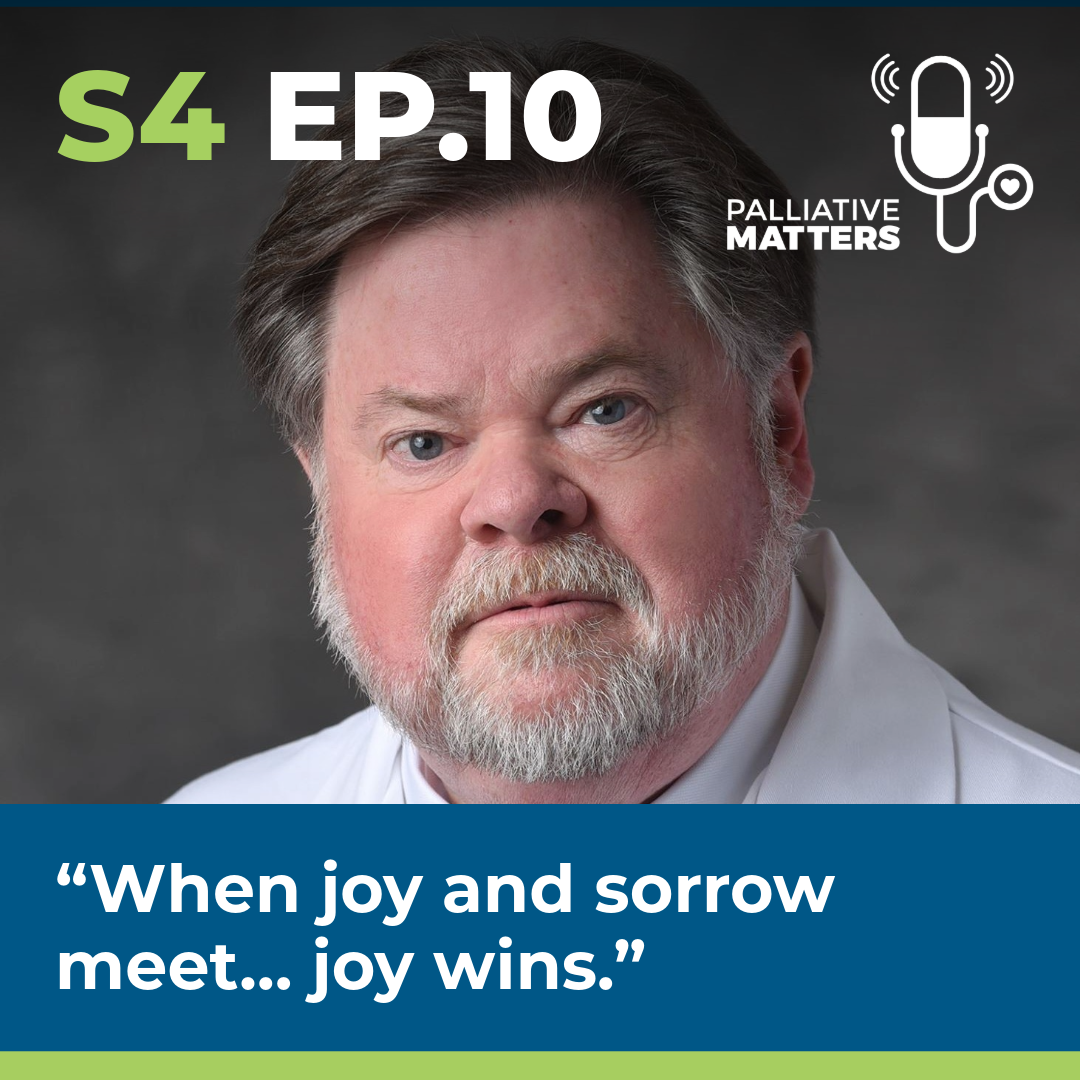
In this episode of Palliative Matters, John Mulder sits down with Dr. John Finn, a pioneer in hospice and palliative medicine, to explore the profound human impact of care at the end of life. Dr. Finn shares stories from his early days in oncology and hospice, highlighting the transformative power of honesty, compassion, and presence in patient and family care.
From the challenges of modern healthcare to the beauty of a “good death,” this conversation reminds us that even in the face of sorrow, joy can prevail—and that the relationships we nurture at life’s end can teach us lessons about living fully.
Join us for an inspiring discussion on how hospice and palliative medicine enrich lives, foster authentic connections, and offer hope and healing when it matters most.
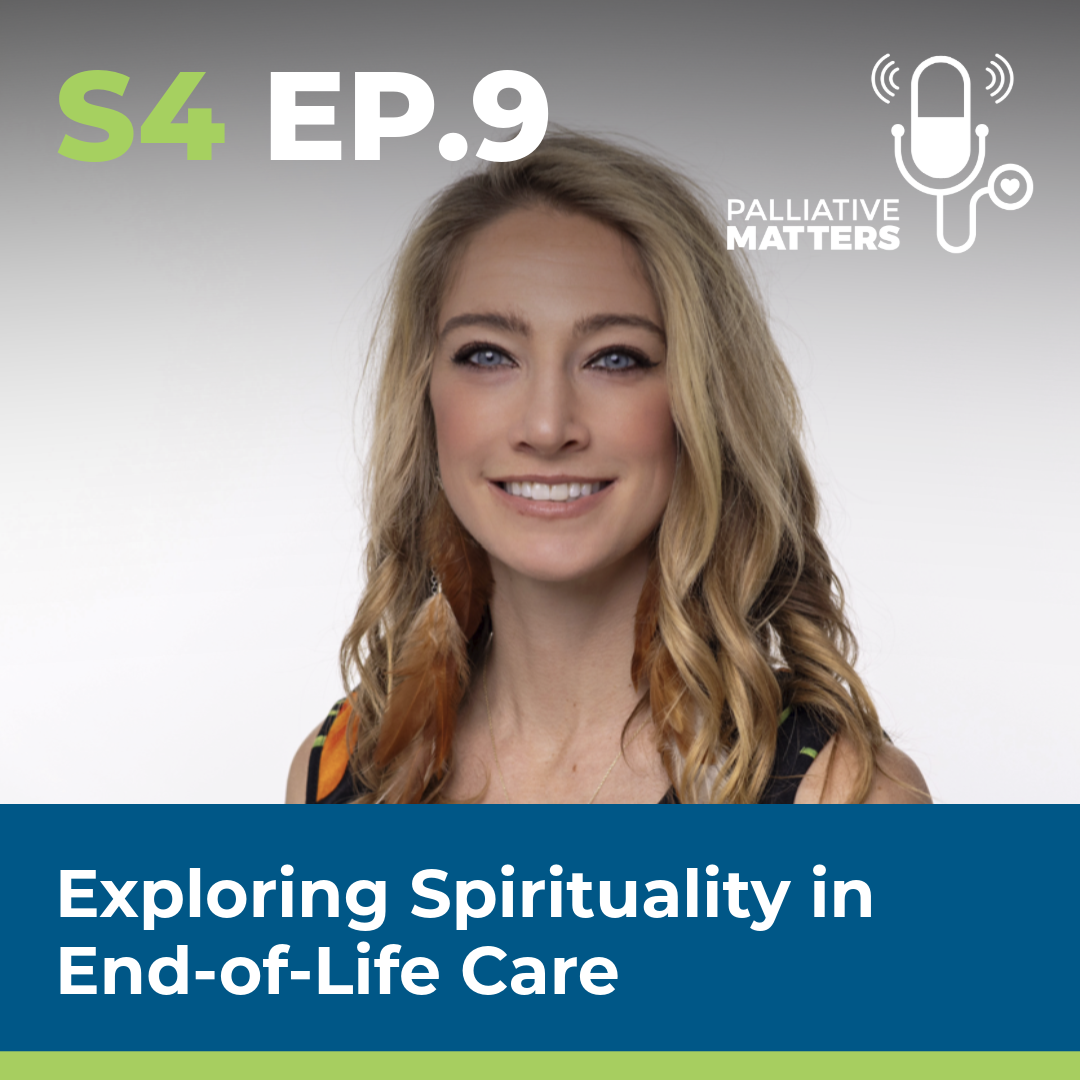
Did you know that 77% of patients want their physicians to consider their spiritual needs? Spirituality and religion have a significant impact on the quality of life and preferences of care, which align with the fundamentals of palliative medicine. In this episode, we welcome back Dr. Ariel Dempsey to explore the role of spirituality in medicine, its positive and negative manifestations, and how physicians from any background can open the door to whole-person care for their patients.
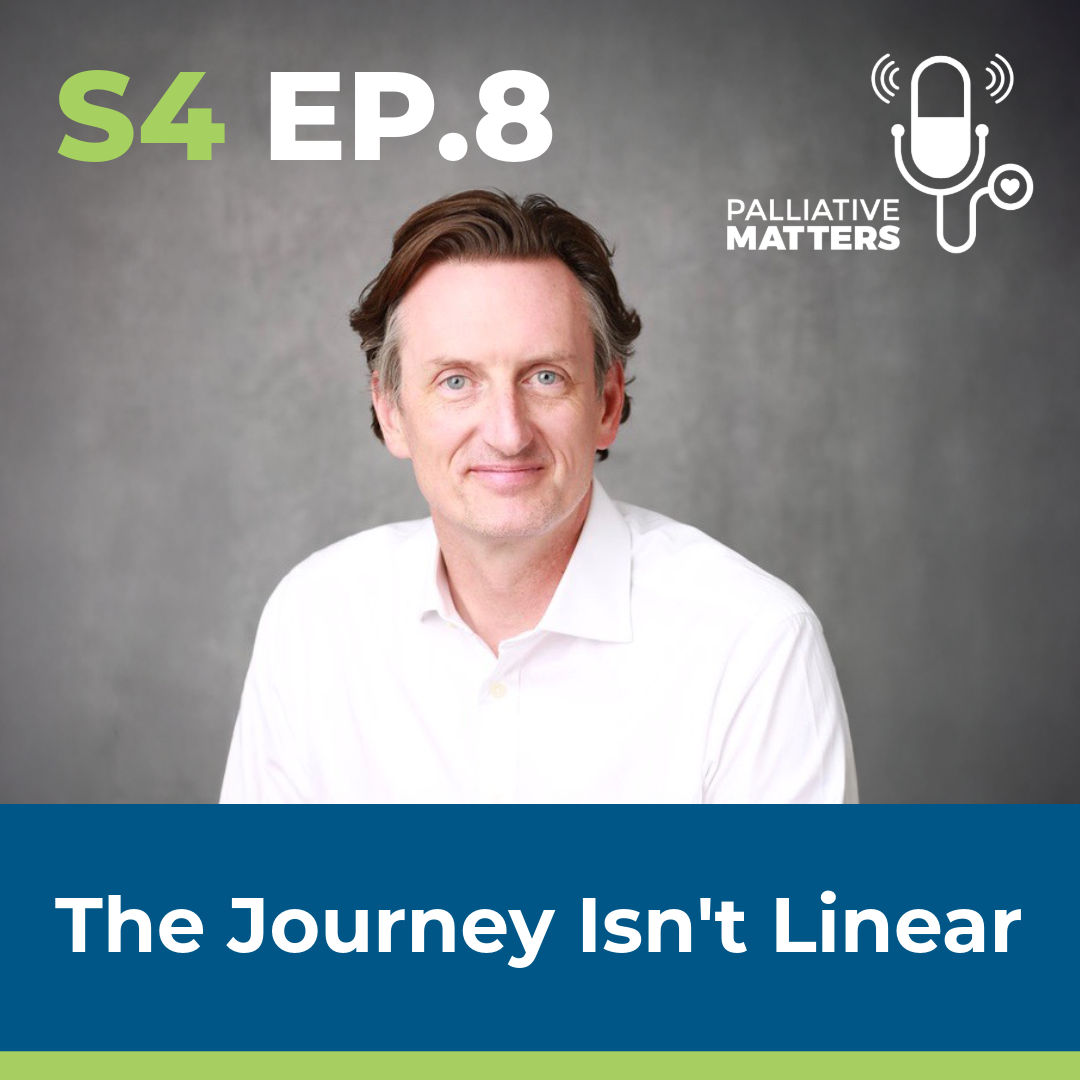
In this episode, Dr. Tim Ihrig joined Dr. Mulder and Dr. Beckrow to take an insightful look at the downsides of our medical system. For a system focused on ROI, putting people in hospital beds, and curing diseases, how do palliative care physicians, who have opposite goals, fit into the mix? And what can we learn from them and apply to other fields of medicine to change our system for the better?
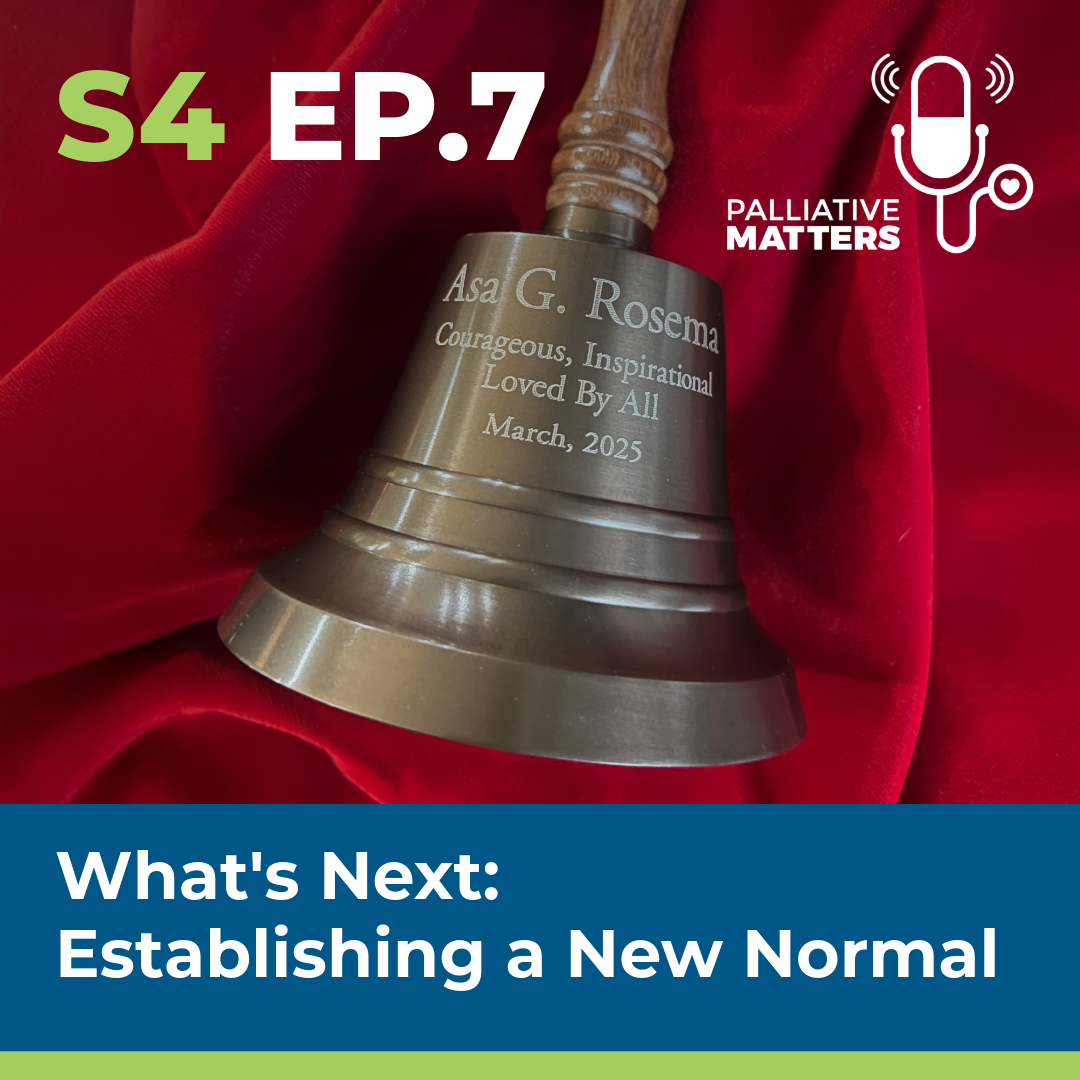
When cancer patients finish treatment, they ring a bell—signifying the end of a chapter but not the end of their story. As the person transitions to survivorship, there are a myriad of emotional and physical challenges that come about. So, how can we as physicians continue to support our patients through this next phase of their disease journey? In this episode, Dr. Mulder and Dr. Beckrow share personal and professional insights on the importance of continued care and support through this transitional time.
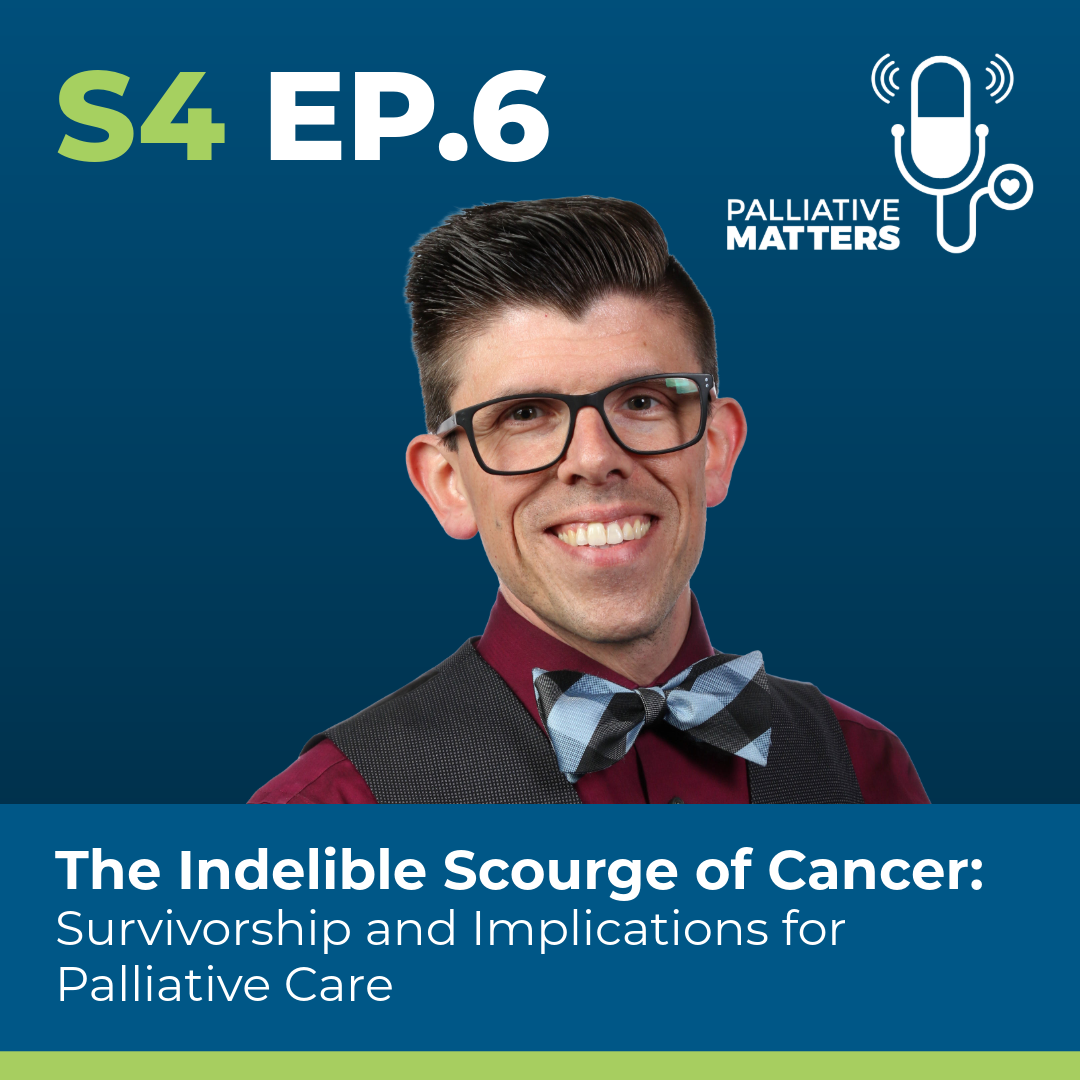
Cancer is an identity-shaping experience. Survivors are forever changed and carry both physical and mental scars. In this episode, Dr. John Mulder and Dr. Jason Beckrow talk with special guest Dr. Joseph McCollum. Dr. McCollum is both a medical oncologist and palliative oncologist who is also a part of a survivorship care clinic. He shares how he and his team are working to integrate palliative care concepts into survivorship care, helping those who have overcome this harrowing experience start putting the pieces back together.
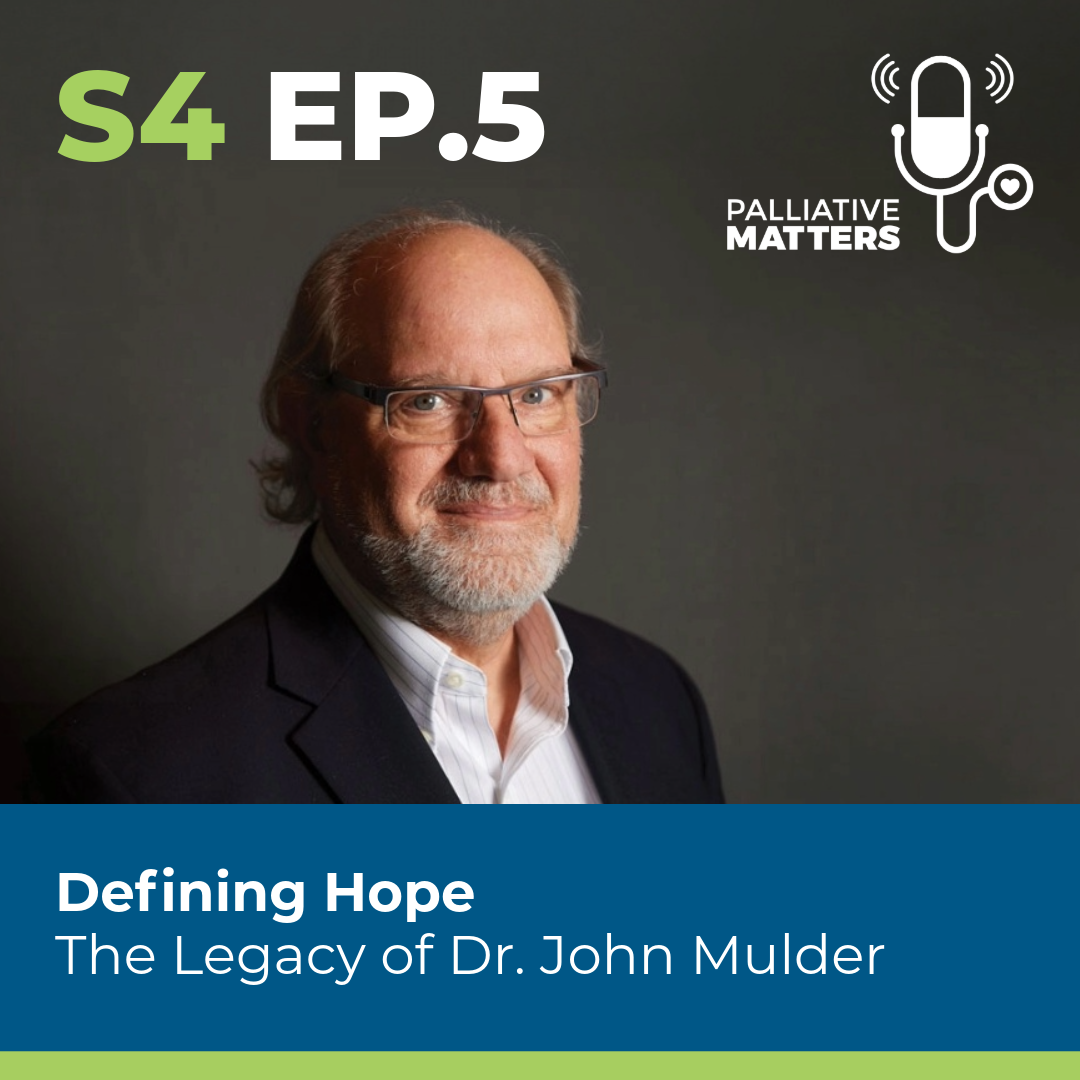
This rereleased episode is dedicated to longtime Palliative Matters host, Dr. John Mulder. The idea of hope is often idealistic and romanticized. For those facing a life-limiting illness, the “hope” of being cured or of life returning to the way it was before a diagnosis can be discouraging. In this episode, Dr. Mulder and Dr. Beckrow explain how they can help people redefine hope by setting clear expectations and realistic goals for patients and their families.
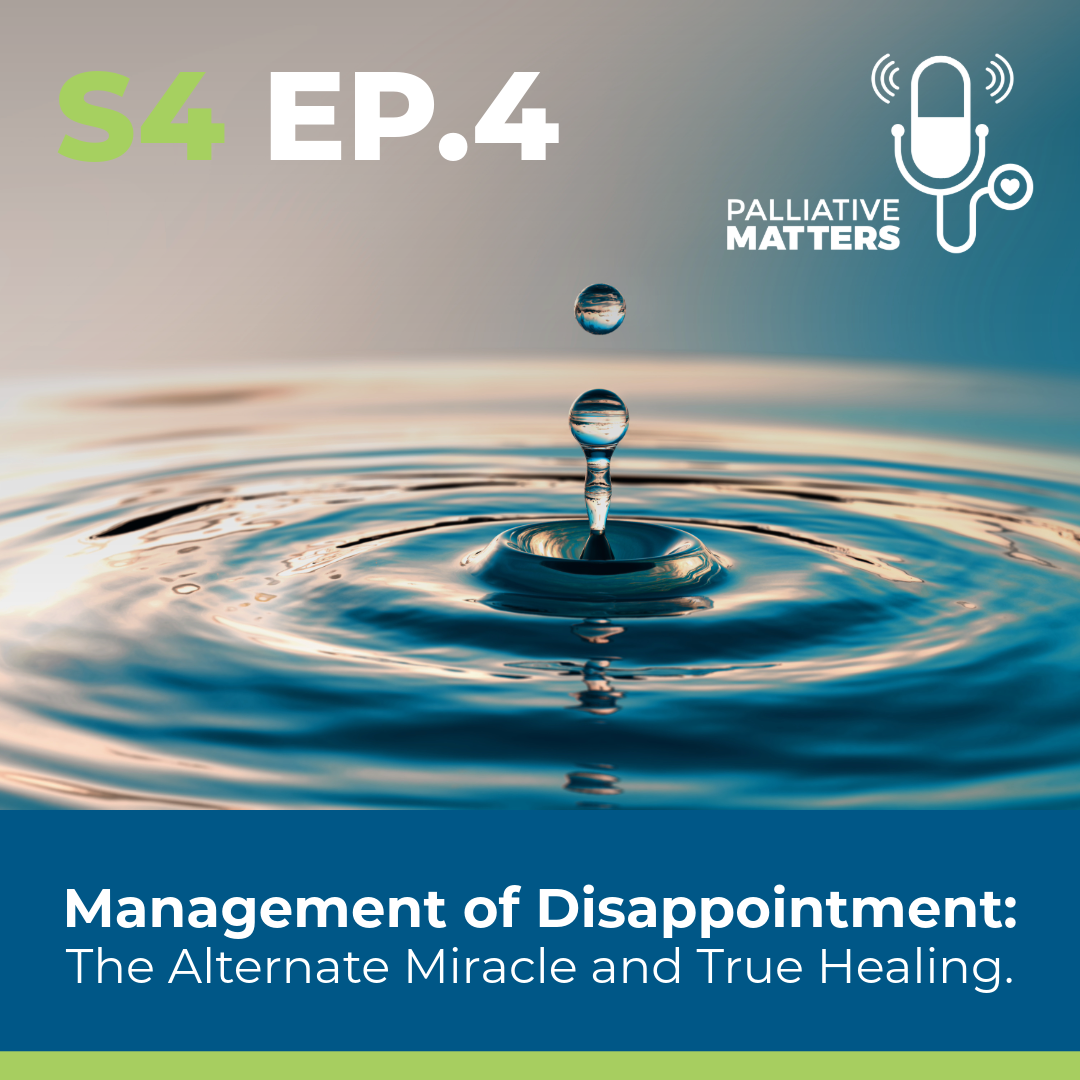
As palliative care physicians, Dr. John Mulder and Dr. Jason Beckrow have witnessed their fair share of miracles. This, however, rarely means a cure. More often, the miracles that palliative doctors can help cultivate are ones of reconciliation, comfort, and restoration. In this episode, the doctors discuss how they help manage disappointment among their patients and offer them true healing.
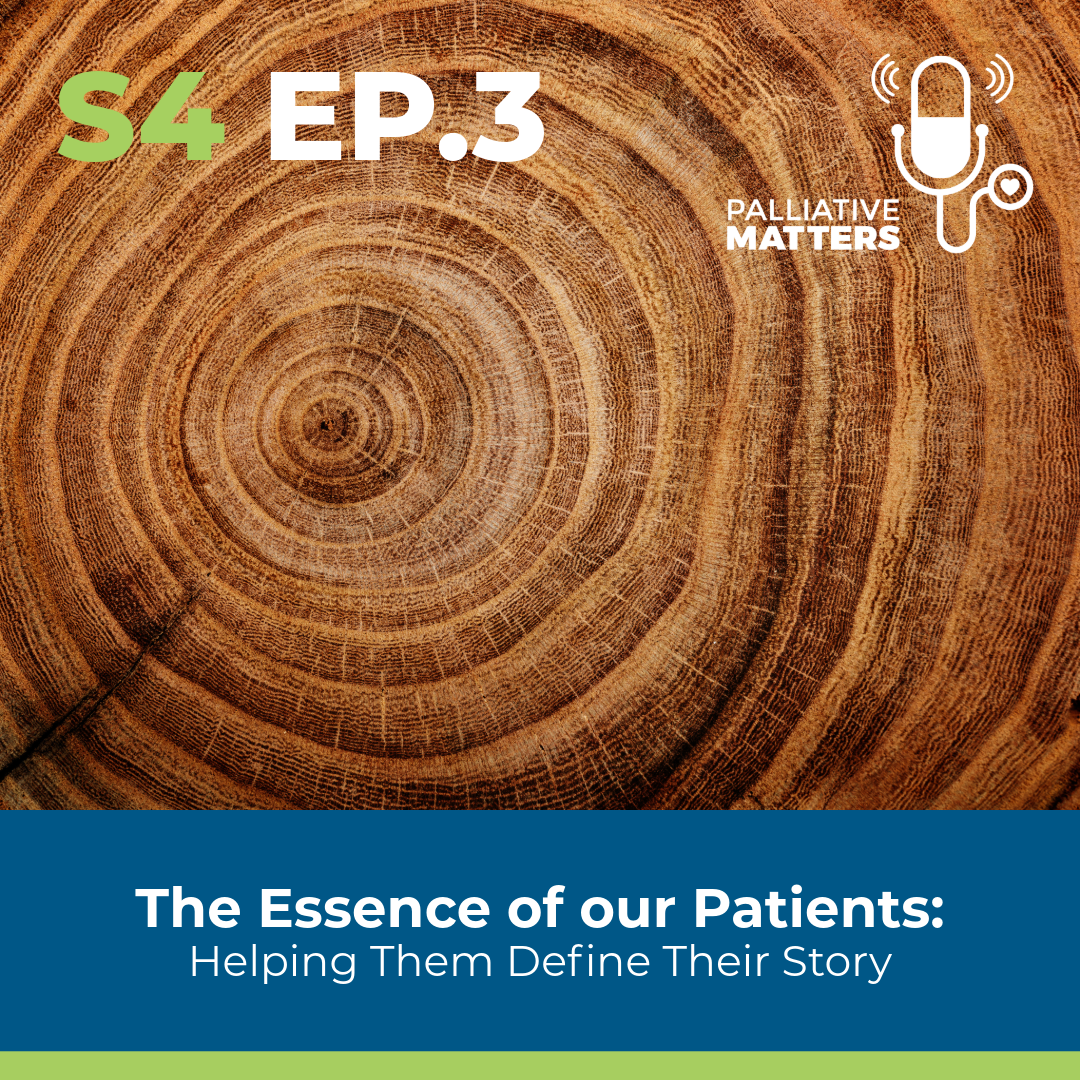
Doctors are often trained to focus on the data. Data makes for a strong foundation, but it’s only the first floor. To truly care for a patient, we must look beyond the data—building off of their character, values, history, and goals. As palliative nurse practitioner Barbara Opperwall said, “The story of the patient is their data with a soul.” In this episode, Dr. John Mulder and Dr. Jason Beckrow discuss relational medicine, intensive caring, and empowering patients through understanding their stories.
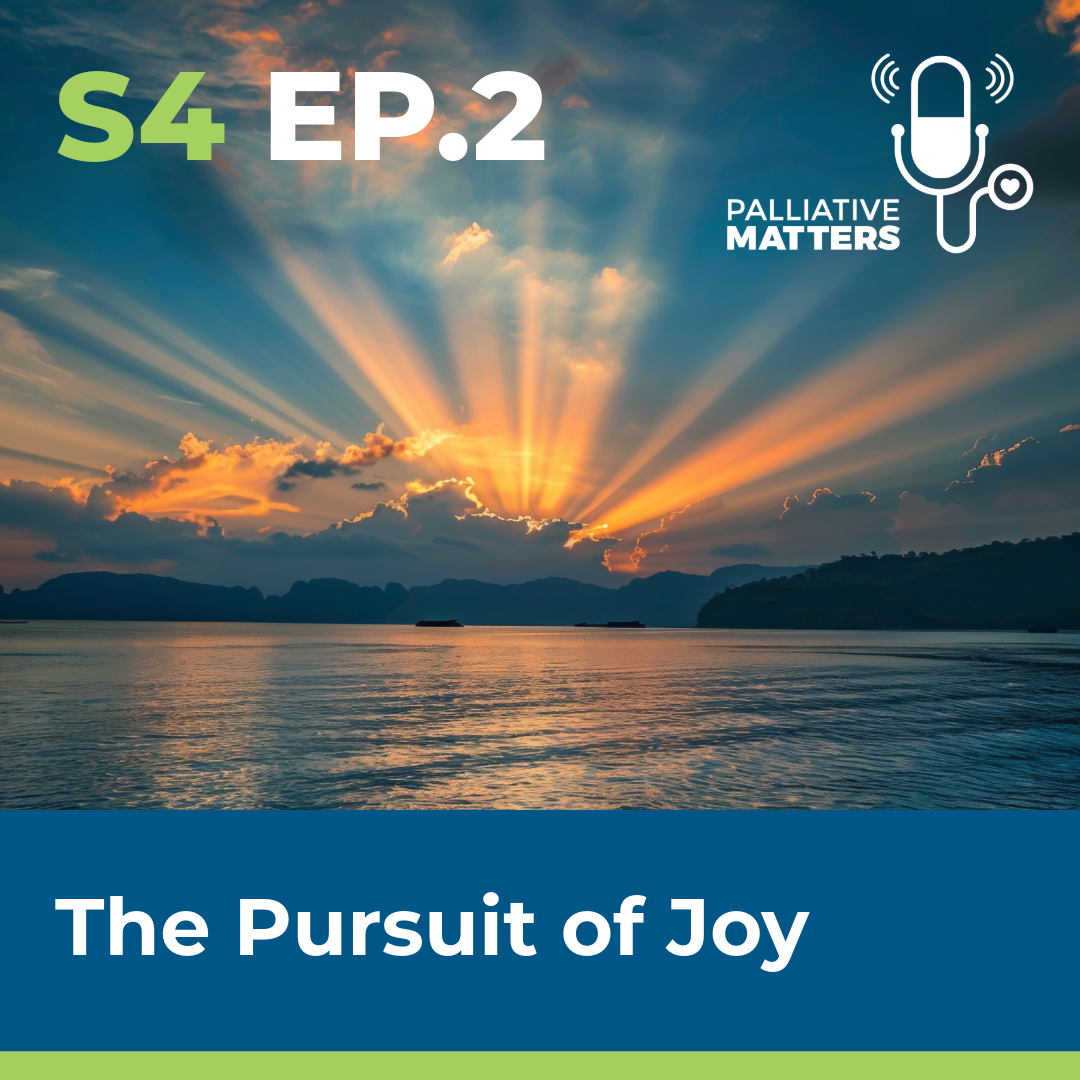
As hospice and palliative care physicians, we care for patients in difficult situations. Yet, we see a lot of joy in those moments. So, what role can we play in helping to cultivate peace and healing for our patients? In this episode, Dr. John Mulder and Dr. Jason Beckrow discuss how patient-centered care, active listening, and being present can help patients see through their circumstances and find joy.
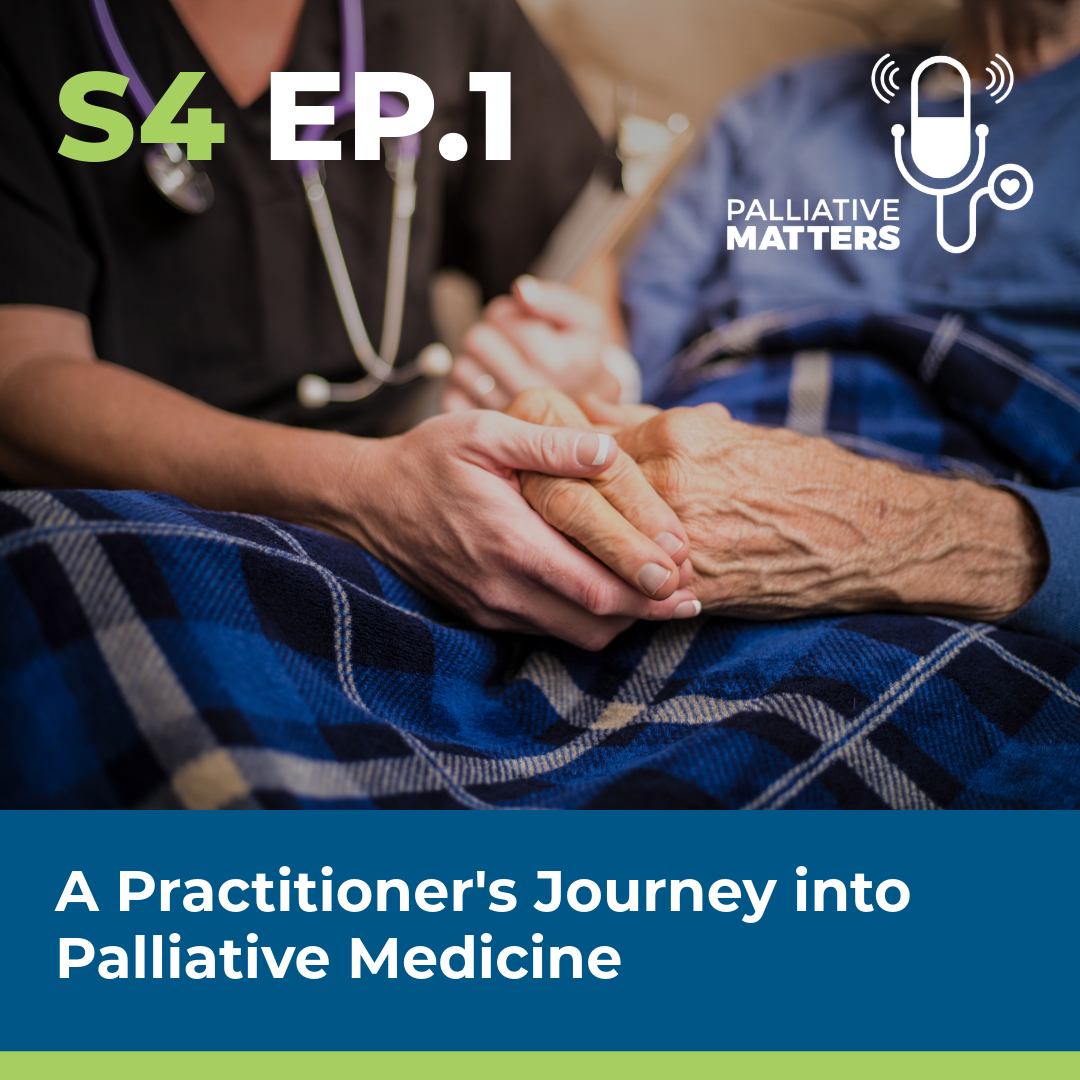
Doctors are trained to cure, treat, and fix. So, how do physicians end up in a field of medicine where the objectives are different? In this episode, Dr. Mulder and Dr. Beckrow discuss how they came to work in the area of advanced illnesses and the purpose that they have found being injected into challenging situations and precarious relationships.
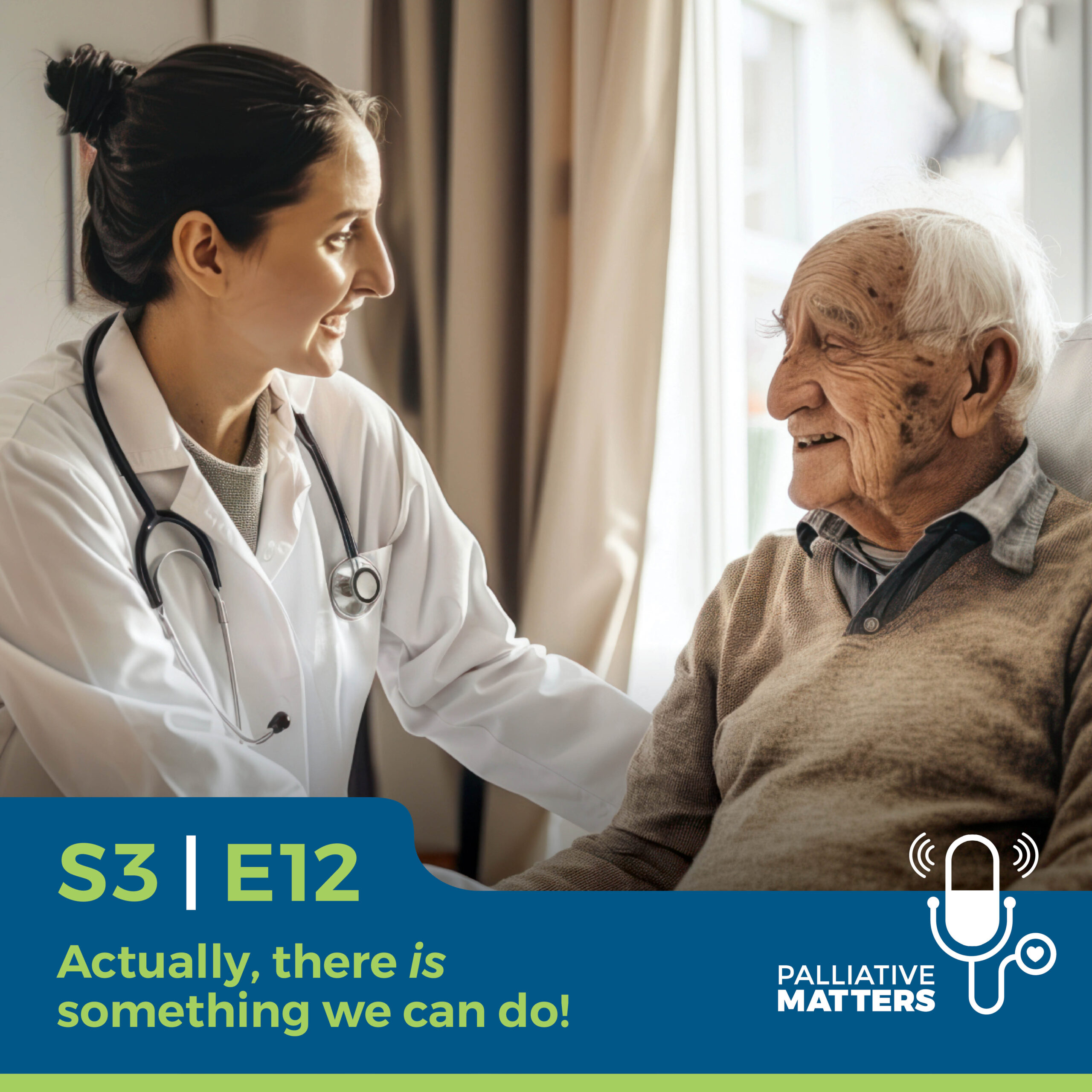
Why should physicians never tell their patients, “There’s nothing more we can do?” As diseases and illnesses progress, the hope for a cure may diminish, but that doesn’t mean that we can’t continue to provide care. In this episode, Dr. John Mulder and Dr. Jason Beckrow discuss how you can encourage patients and offer opportunities for healing, proving that, usually, there is something you can do.
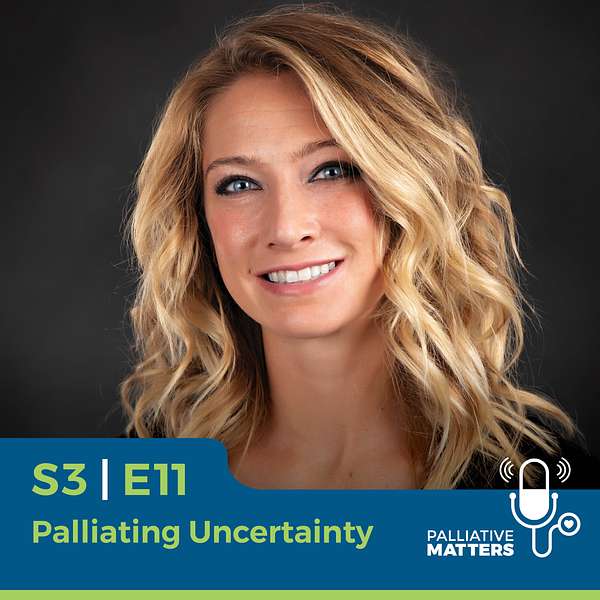
Uncertainty can cause a lot of suffering, but palliative medicine is meant to alleviate suffering. So, how can physicians work within it’s confines? In this episode, Dr. John Mulder and Dr. Jason Beckrow are joined by Dr. Ariel Dempsey as they dive deeper into the discussion on uncertainty in medicine and the challenges and opportunities it provides. They share how, as physicians, you can acknowledge uncertainty, approach it with humility, and choose to take action in spite of it. Listen now at the link below to tap into their insights.
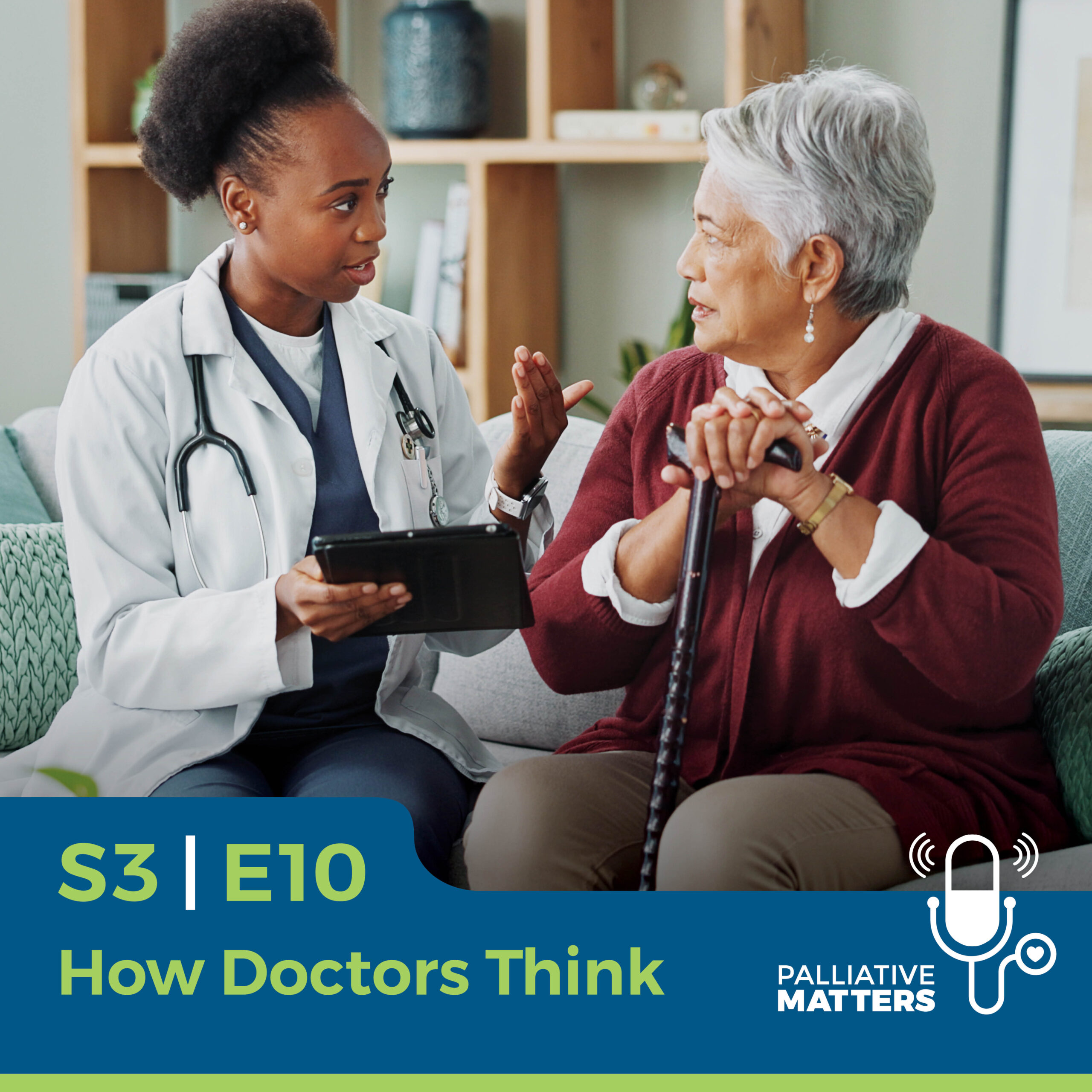
What motivates doctors’ decision-making beyond evidence, knowledge, and experience? As Dr. John Mulder and Dr. Jason Beckrow discuss, our patient’s wants and wishes should always be considered. Often, though, doctors make decisions based on fear–fear of litigation, of being wrong, or of missing something, especially when uncertainty is present. In this episode, the doctors share how we can mitigate negative motivators by putting the patient first.
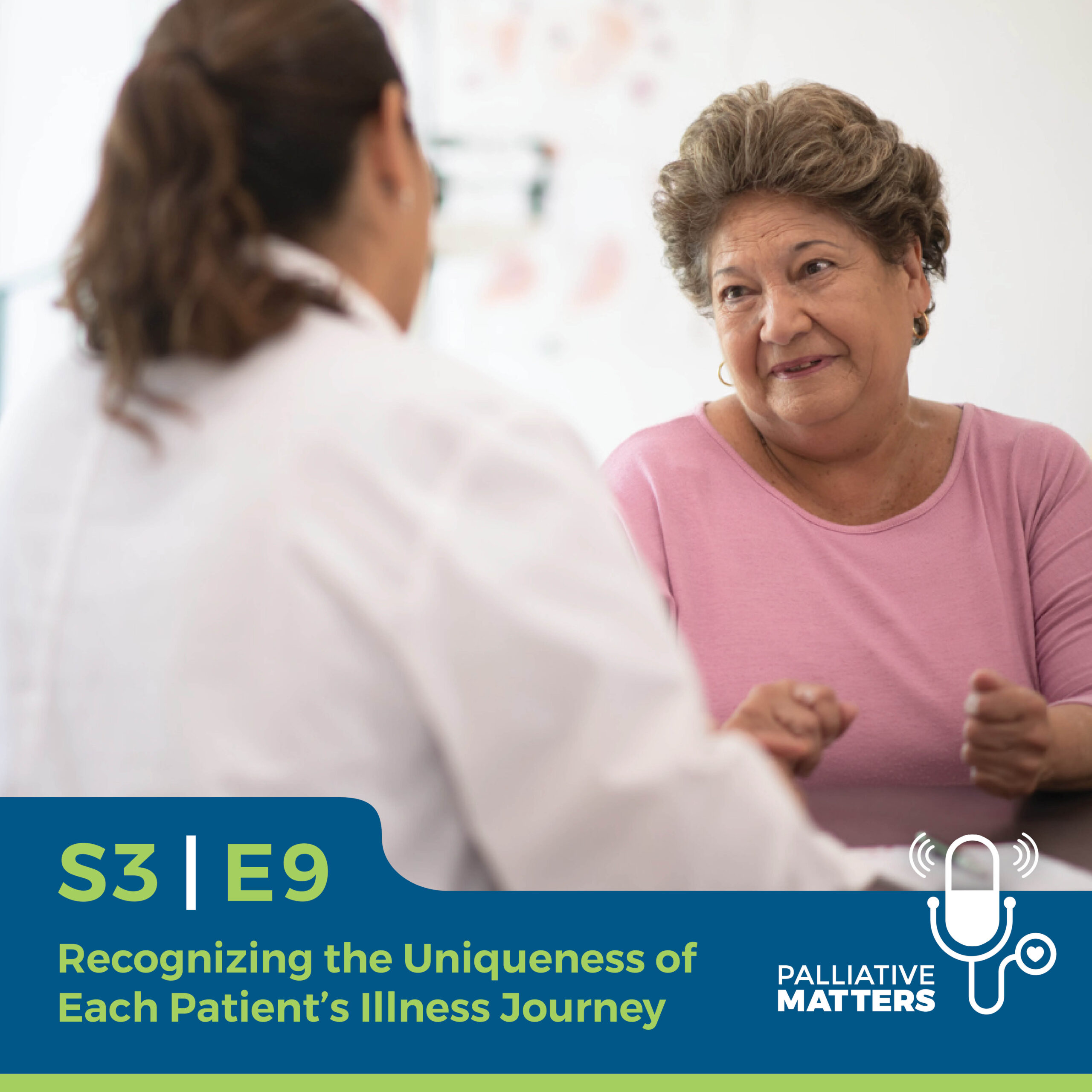
As physicians, we let our experiences and knowledge guide us. Often, this leads to us entering a patient’s room with some assumptions in hand. However, it’s important to remember that people with the same diagnosis can have completely different emotional reactions, and it’s our job to meet them where they are. In this episode, Dr. John Mulder and Dr. Jason Beckrow discuss overcoming unconscious bias in palliative medicine by taking the time to understand the patient’s perspective and learning about their unique journey.
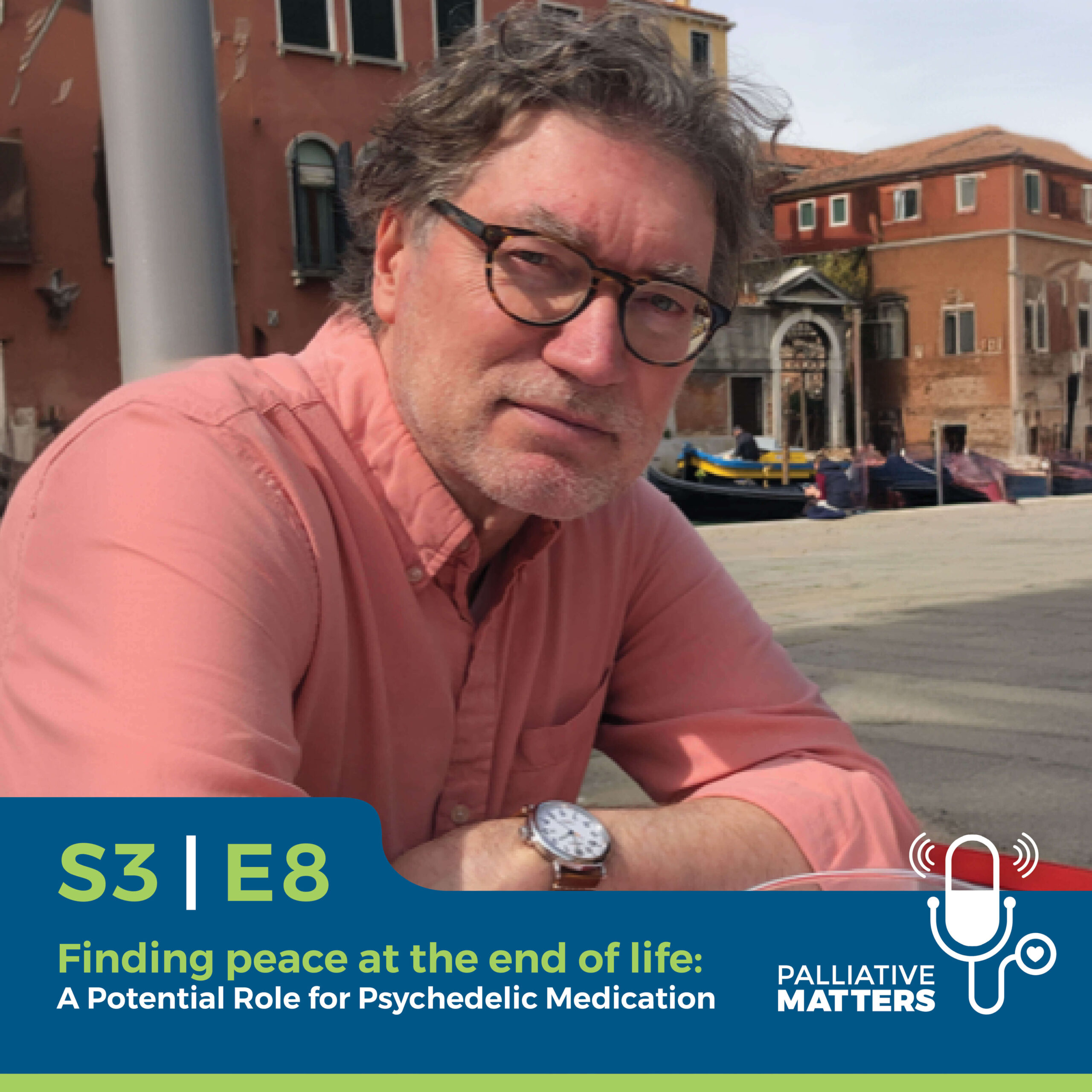
Psilocybin has had a place in healing for millennia, particularly among ancient civilizations and cultures. While it’s had a negative view in some corners of contemporary American society, research into its potential has gained traction and it is slowly finding a place in the mainstream. In this episode, Dr. Mulder and Dr. Beckrow are joined by Prof. Michael DeWilde, who shares his knowledge of the history, uses, and benefits of psilocybin. This has prompted Dr. Mulder and Dr. Beckrow to ask, “Is there a place for psilocybin in palliative medicine and end-of-life care?”
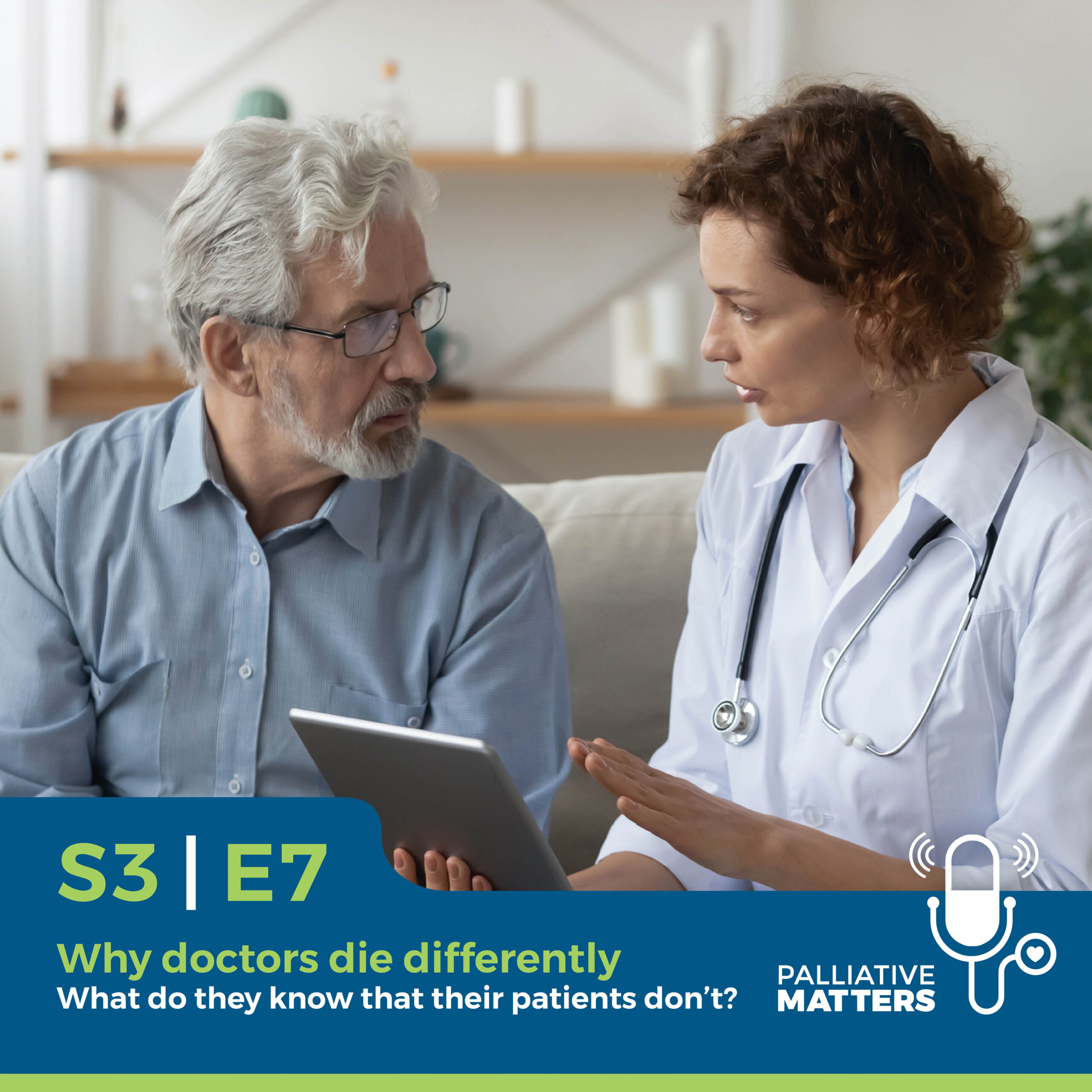
Studies have shown that doctors are less likely to have surgery or be admitted to the ICU in the last six months of their life and are less likely to die in the hospital. So, what do doctors know that their patients don’t? In this episode, Dr. Mulder and Dr. Beckrow discuss some of the systematic failures of our healthcare system and the importance of informed consent. They ask and answer, “How can physicians advise patients based on their unique wants and wishes to give them a higher-quality end-of-life experience?”
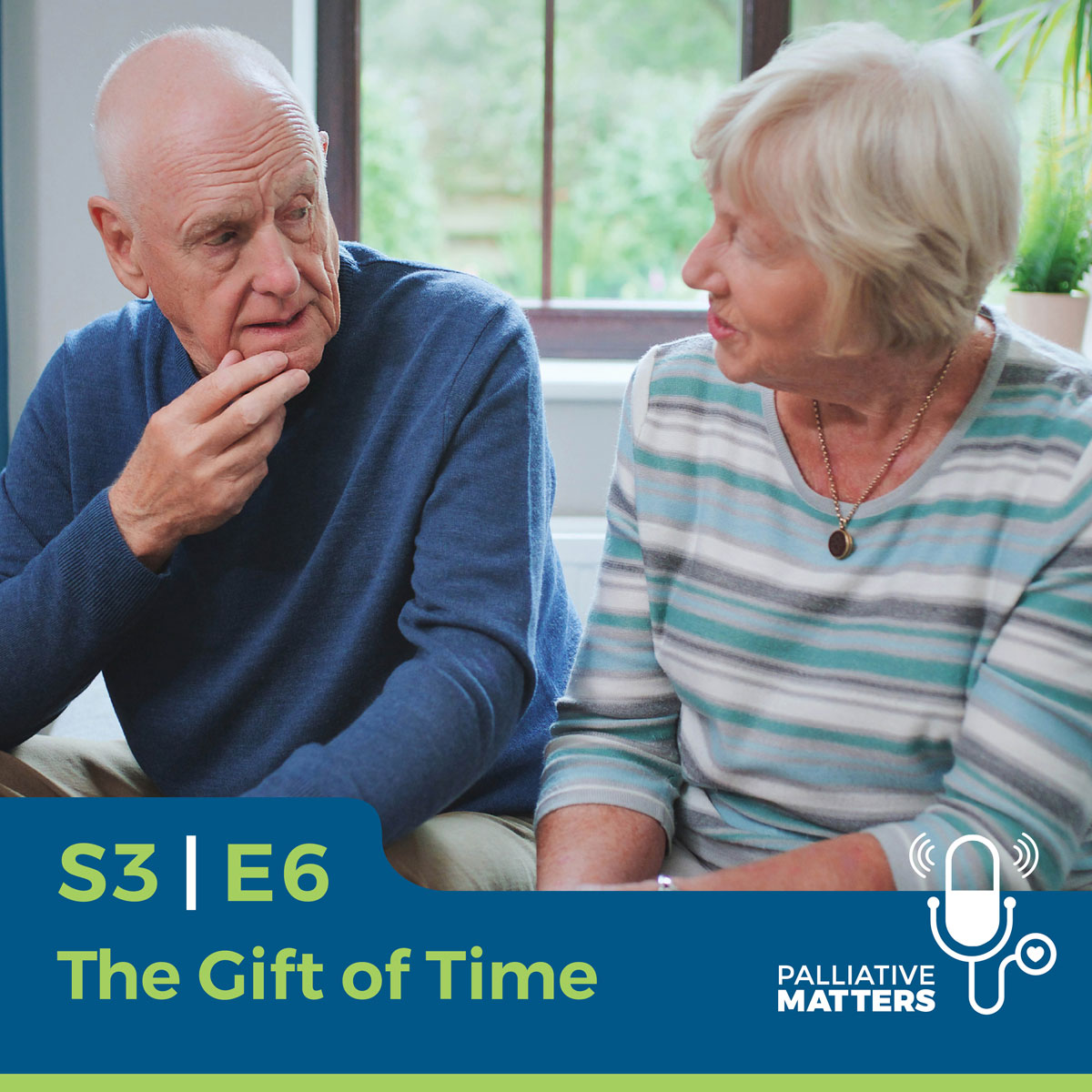
Prognostication is not an exact science. So, when patients ask the inevitable question, “How much time do I have, doc?” How can we answer? In this episode, Dr. John Mulder and Dr. Jason Beckrow reflect on the challenge of prognostication and how they leverage their years of experience to try and provide patients with the gift of time.
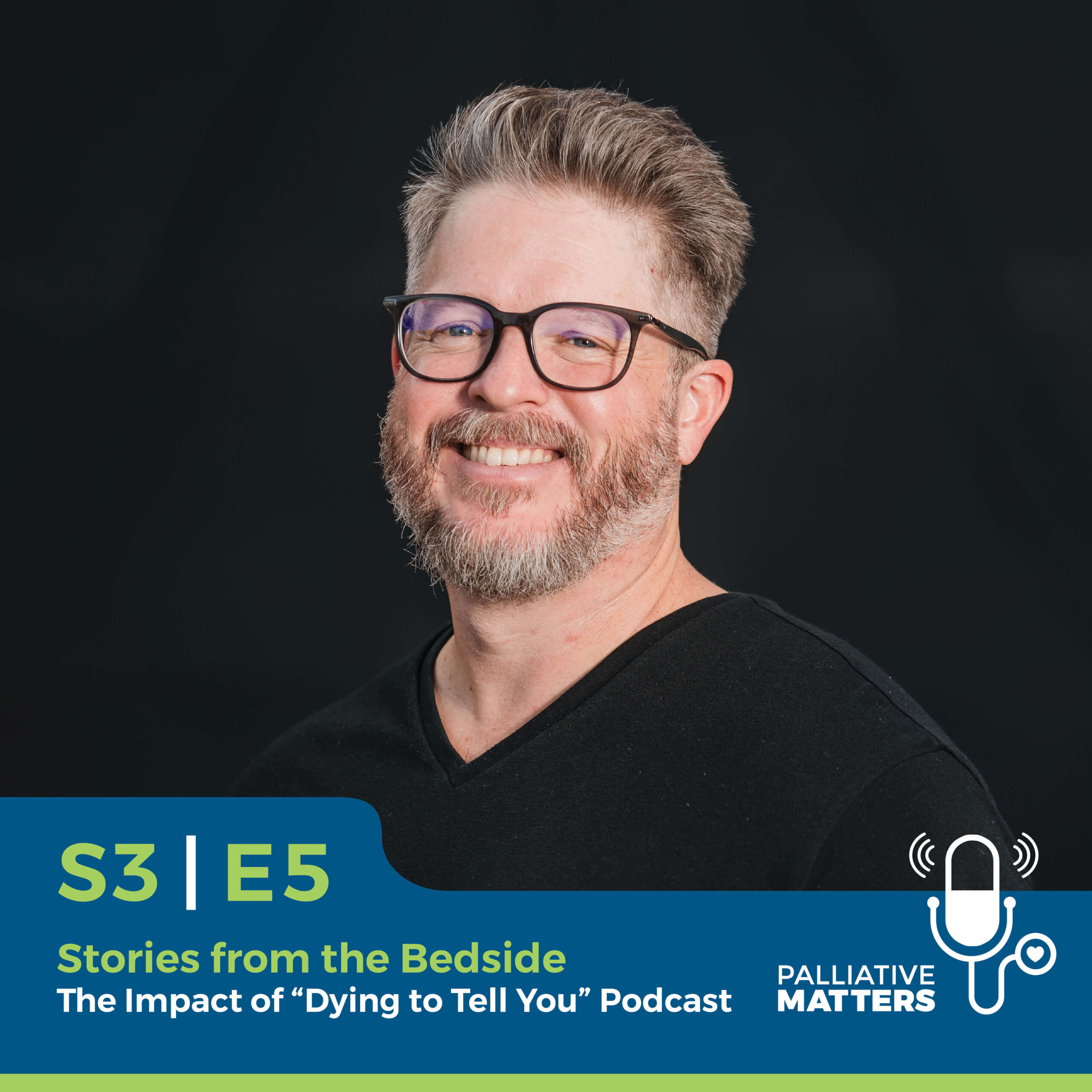
In this episode, Dr. John Mulder and Dr. Jason Beckrow are joined by palliative care chaplain Cody Hufstedler. Cody has a podcast of his own, Dying to Tell You, where he interviews people nearing the end of life. With the doctors, he shares some of the joys, sorrows, and beauty he has uncovered while helping terminally ill patients and their loved ones work through some challenging realities. Listen to the episode, and be sure to check out Dying to Tell You at dttypodcast.com
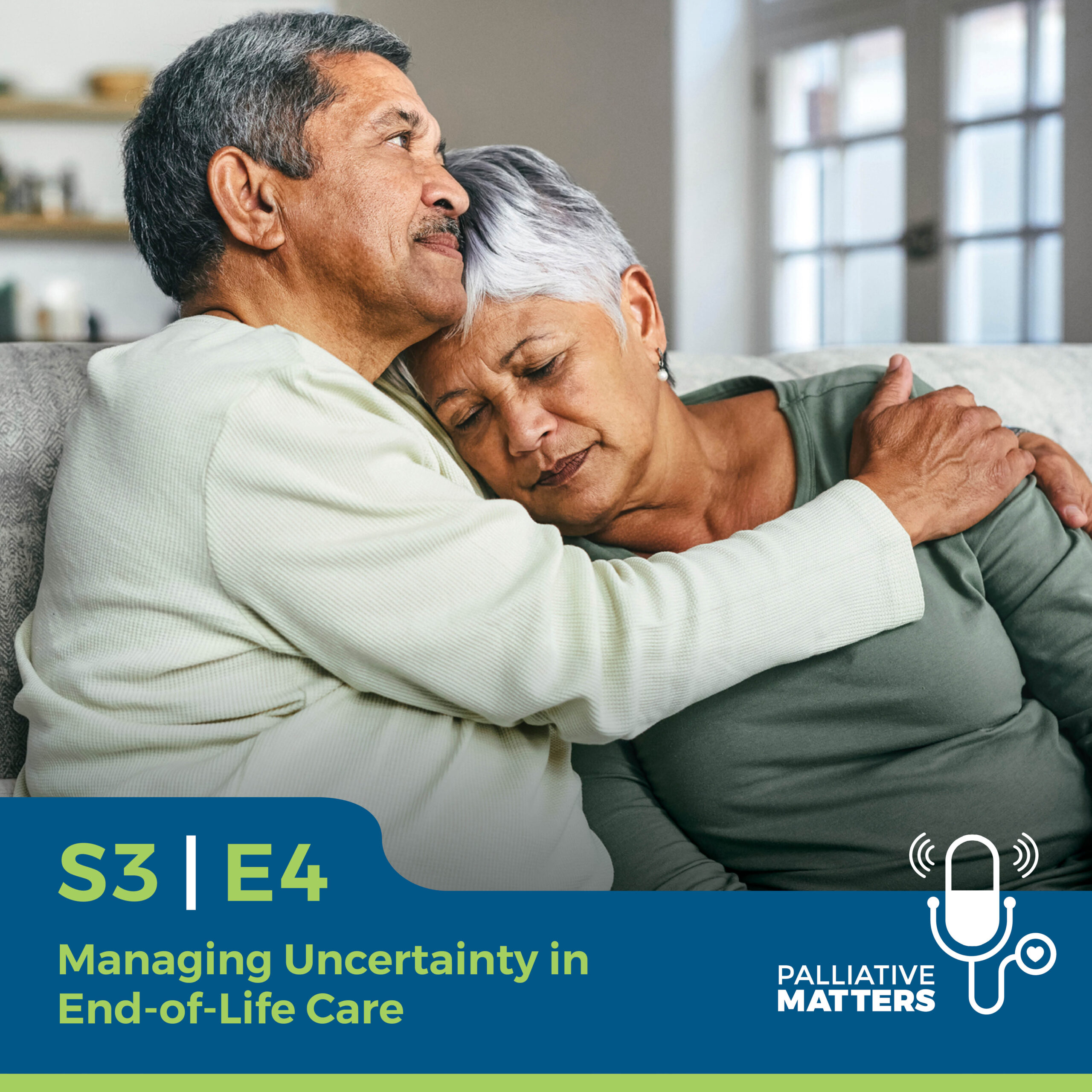
For each diagnosis, there is an expected path that the disease will take. But along that path are many offshoots of possibilities, known and unknown. Amid the uncertainty, how can providers manage expectations and continue to build trust with their patients? In this episode, Dr. John Mulder and Dr. Jason Beckrow discuss how they operate in the realm of uncertainty when patients and their loved ones are often looking for finite answers.
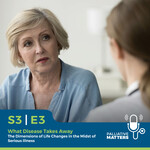
When someone is given a life-altering diagnosis, change is inevitable. Disease can take away so much from a person: their identity, their power, their abilities. In this episode, Dr. John Mulder and Dr. Jason Beckrow discuss how they help patients regain some of their power and agency, with Dr. Mulder touching on his own experiences from when he was diagnosed with a terminal illness and the effect the journey had on him.
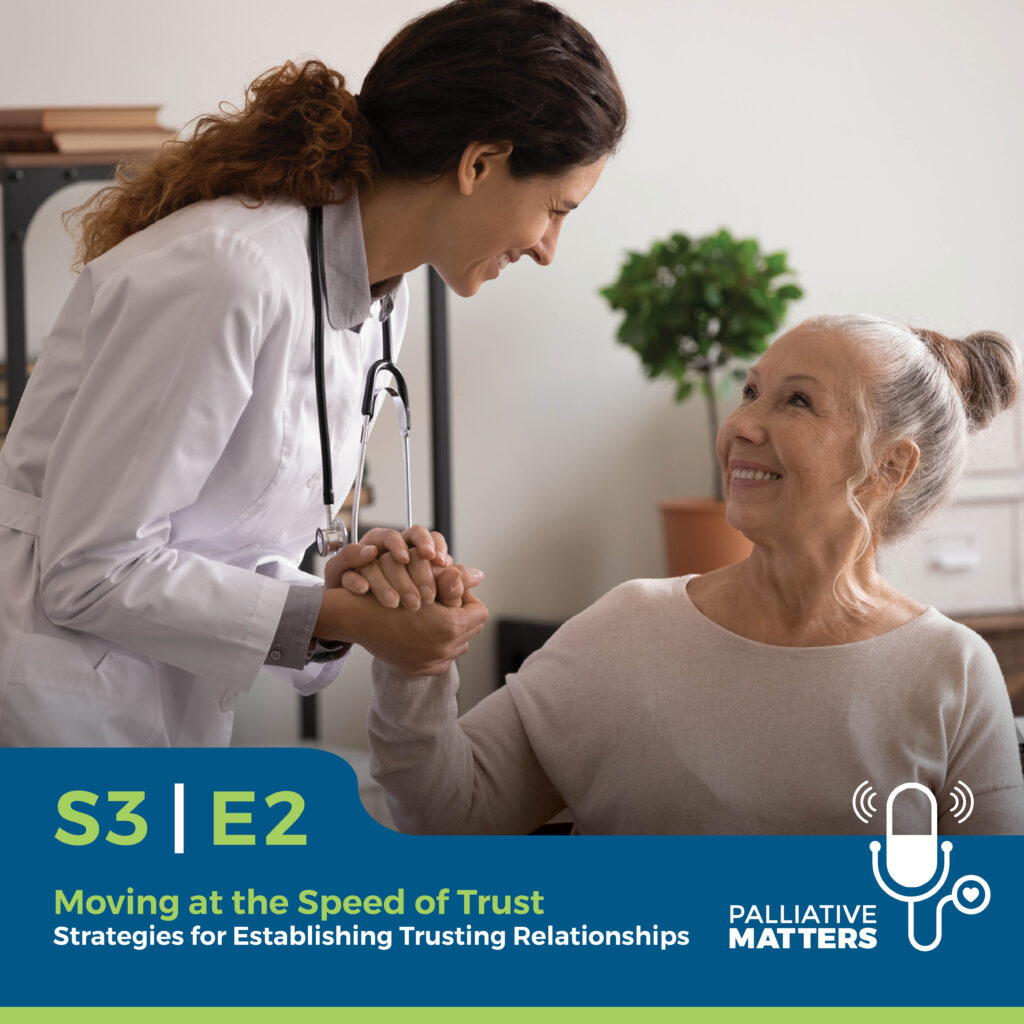
Most doctors understand that establishing trust is an important part of caring for their patients. But how does one go about doing so? In this episode, Dr. Mulder and Dr. Beckrow discuss how they work towards earning the trust of their patients, starting with making sure they feel seen and heard. Listen to learn more about how the doctors form symbiotic relationships with those in their care.
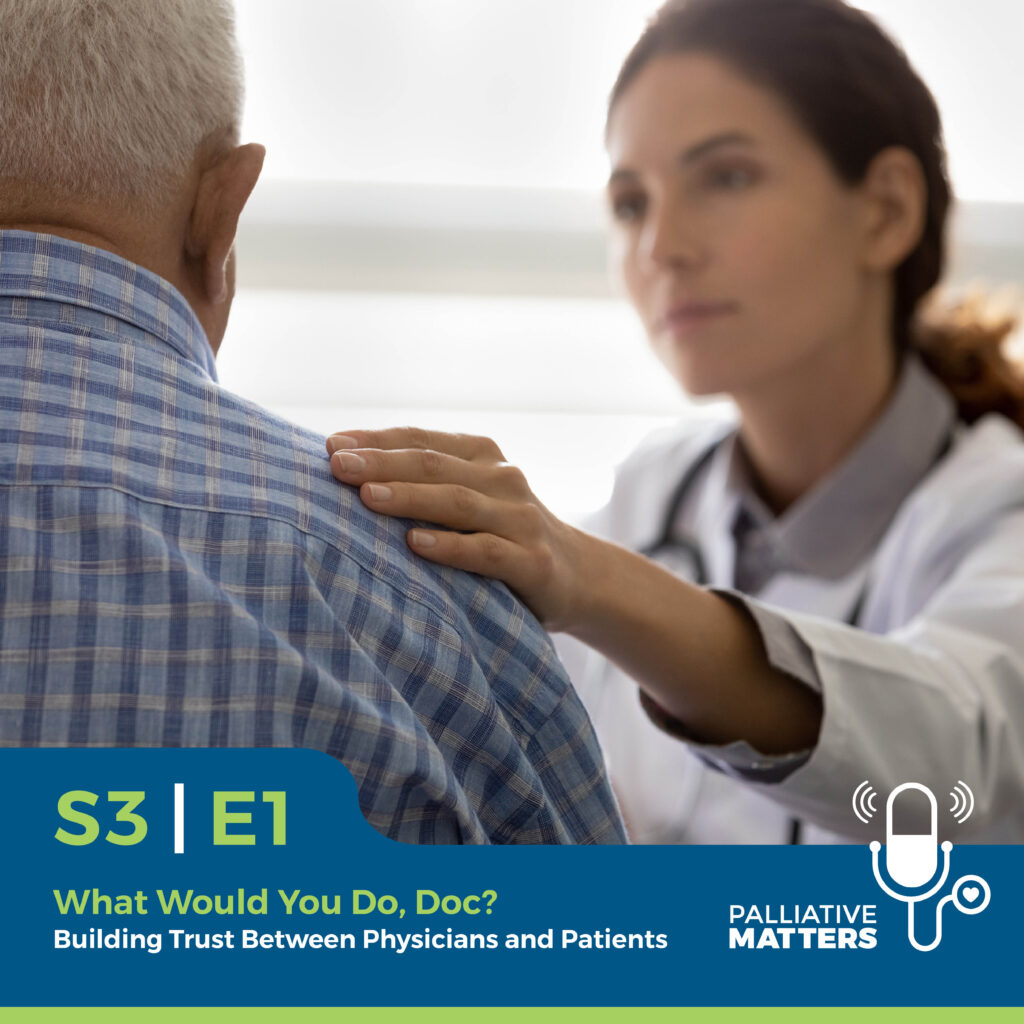
Helping patients and their loved ones make decisions is one of the greatest challenges of being a physician. But it’s also one of the greatest responsibilities. To kick off Season 3, Dr. John Mulder and Dr. Jason Beckrow discuss how they build trust with their patients through collaborative communication, education, and empowerment—centered on an understanding of their patient’s values and belief systems.

How can music address the psychological, physiological, and sociological issues associated with life-limiting illnesses and the end-of-life? In this episode, Dr. Mulder and Dr. Beckrow are joined by renowned musical therapist Dr. Deforia Lane. She talks about the role that music can play in meeting the unique needs of each patient as it activates different parts of the brain to address mood, pain, and even communication.

In this special episode, Dr. Mulder and Dr. Beckrow are joined by Dan and Lisl Keuning, who share their personal experience with Dan’s frontal temporal dementia diagnosis. They discuss how the life-limiting illness has impacted their lives and how, after finding the right palliative care practitioner to work with, the Keuning family’s care and outlook have changed.

When people hear the word hospice, it often brings about fear and anxiety. But when the interdisciplinary services and benefits hospice provides are explained, the reaction is usually much different. In this episode, Dr. Mulder and Dr. Beckrow discuss the importance of patients understanding what their diagnosis means and learning about strategies and resources that they can engage with to help manage their illness.
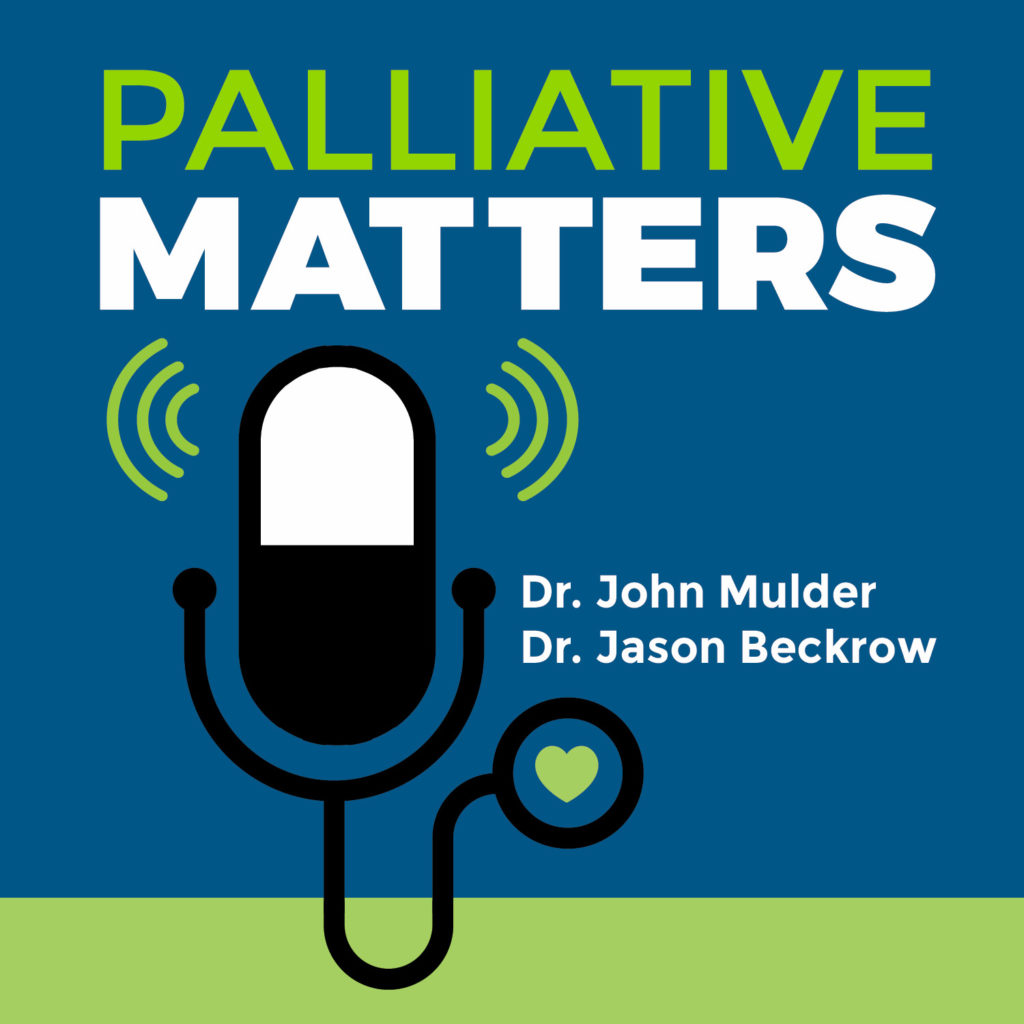
As a society, we have a tendency to avoid talking about death and dying. But as palliative and hospice care providers, Dr. Mulder and Dr. Beckrow are exposed regularly to the end-of-life journey. In this episode, they discuss how, as doctors, they help patients come to terms and make peace with their medical circumstances. They also help listeners better understand the dying process and the physical, emotional, and spiritual components they often witness.

When someone enters palliative or hospice care, a whole new set of tools and resources become available, including bereavement care for their loved ones. In this episode, the doctors discuss how we all have a duty to be present for those who are grieving and how bereavement services help people move toward healing in their own way.

While palliative care can have a profound impact on patients, it can also be transformational for their family, friends, or others who they are close with. In this episode, the doctors discuss the unexpected blessings that come along with treating patients with the resources that palliative care provides—including the healing, closure, and meaningful connections that they have witnessed.

Advance care planning involves discussing and preparing for future decisions about medical care, and, as the doctors explain, it is all about patient autonomy. What does a patient value? How do they define their quality of life? Where do they draw the line? In this episode, Dr. Mulder and Dr. Beckrow dive into the importance of having these conversations with your loved ones as early as possible, acknowledging that wants and wishes can change over time based on a patient’s circumstance, age, and illness.

Can someone experience healing while not being cured of their disease? In this next episode, Dr. Mulder and Dr. Beckrow discuss the differences between being healed and being cured. In their experience, while someone may not be cured of their disease, they can experience healing in a variety of ways. They talk about cases that have taught them that they can’t always “fix” things and that managing and treating in meaningful ways doesn’t necessarily end with a cure.

A terminal prognosis forces people to face their mortality, which can lead to some
pretty incredible events—core memories being made, long-broken relationships being repaired, final wishes being fulfilled. In this episode, the doctors share stories from their careers that demonstrate some of the life-changing things people can experience under hospice care. Listen to witness yourself the healing power—emotionally, spiritually, or physically—that hospice can have.

With palliative care being a relatively new field of medicine, there are still many misconceptions about what this specialty provides. While it is often associated with end-of-life, it has become much more expansive. In this episode, Dr. Mulder and Dr. Beckrow discuss the purpose of palliative care and how treatment plans focus on a patient’s goals ultimately empowering them to make choices based on what is important and sacred to them.

What do we learn from our patients that make us better people and better doctors? In this episode, the doctors discuss patient circumstances and what these experiences have taught them. From learning to look for the gifts and miracles in even the direst of situations to making human connections to meet patients where they are, the doctors share real-life experiences that have helped shape who they are as doctors and as people.

The idea of hope is often idealistic and romanticized. For those facing a life-limiting illness, the “hope” of being cured or life returning to the way it was before a diagnosis can be discouraging. In this episode, Dr. Mulder and Dr. Beckrow explain how they can help people redefine hope by setting clear expectations and realistic goals for patients and their families.

When most people think of suffering, they think of it in terms of physical pain, but suffering is a much more dynamic concept. When someone is facing a life-limiting illness, the fear of inability surrounding their situation can be agonizing. Existential crises in the form of financial stress, professional struggles, or familial relationships are common. In this episode, Dr. Mulder and Dr. Beckrow walk listeners through the concept of suffering and how they work to reinforce in a patient their value and worth.

When faced with a life-limiting illness, patients and their loved ones can feel pressure to make the “right” choice or take the “right” step when, oftentimes, there isn’t one. In the next episode of Palliative Matters, the doctors use a real-life example to talk in detail about decision-making throughout the end-of-life journey and how the presence and involvement of a palliative care team helped ease the family of some of those burdens.

When a patient is faced with a life-limiting illness, both they and their support network are burdened with a number of stresses. They are forced to make many difficult decisions in circumstances with no perfect outcome. In this episode, the doctors address the importance of asking the patient what their goals and values are. What do they want to accomplish between now and the end of their life? Listen and learn how to better give the patient a voice and a choice as they face their illness.
ADDITIONAL PODCASTS & GUEST INTERVIEWS:
Dan’s Palliative Care Story
Dr. John Mulder contributes to Dan’s story on YouTube.
Just Breathe Collective Podcast: Deep Breath with John Mulder, MD: what is sacred to you in the face of life?
On March 26,2023 Michael Knox talks with Dr. John Mulder about what it means to live and how we can bring this to all people regardless of what stage of life they are in.
This Day & Age Podcast Ep 03: Quality of Life at the End of Life
In this episode, we sit down with Dr. Michael Dozeman, a hospice and palliative care physician at Faith Hospice, to discuss the philosophy of these areas of care and to dispel some common misconceptions.
Hospice Explained Podcast: Interview with Dr. John Mulder–Pioneering Member of Palliative Care Specialty Part 1
This episode is part 1 of 2. On this episode Dr. Mulder explains differences in palliative and hospice, how technology can impact healthcare and the stigma of other Doctors referring to hospice or palliative care for their patients.
Hospice Explained Podcast: Interview with Dr. John Mulder–Pioneering Member of Palliative Care Specialty Part 2
This episode is part 2 of 2. This episode discusses the term Call Dr. Kevorkian, Death with Dignity, Physician assisted suicide and Physician aid in Dying.
EOLUPODCAST: Ep. 325 Palliative Care–What’s Needed Now and in the Future with John Mulder MD
Learn how palliative care can meet the healthcare needs of the future.
Physician’s Guide to Doctoring: Why is Palliative Care Underutilized? with Dr. John Mulder
We talk about how he got started in palliative care, well before it was a recognized subspecialty, how the specialty has changed, and he helps to clear up some confusion about who should be referred to palliative care. We also discussed how more palliative care referrals can improve outcomes and decrease the cost of care and what systemic changes can help.





